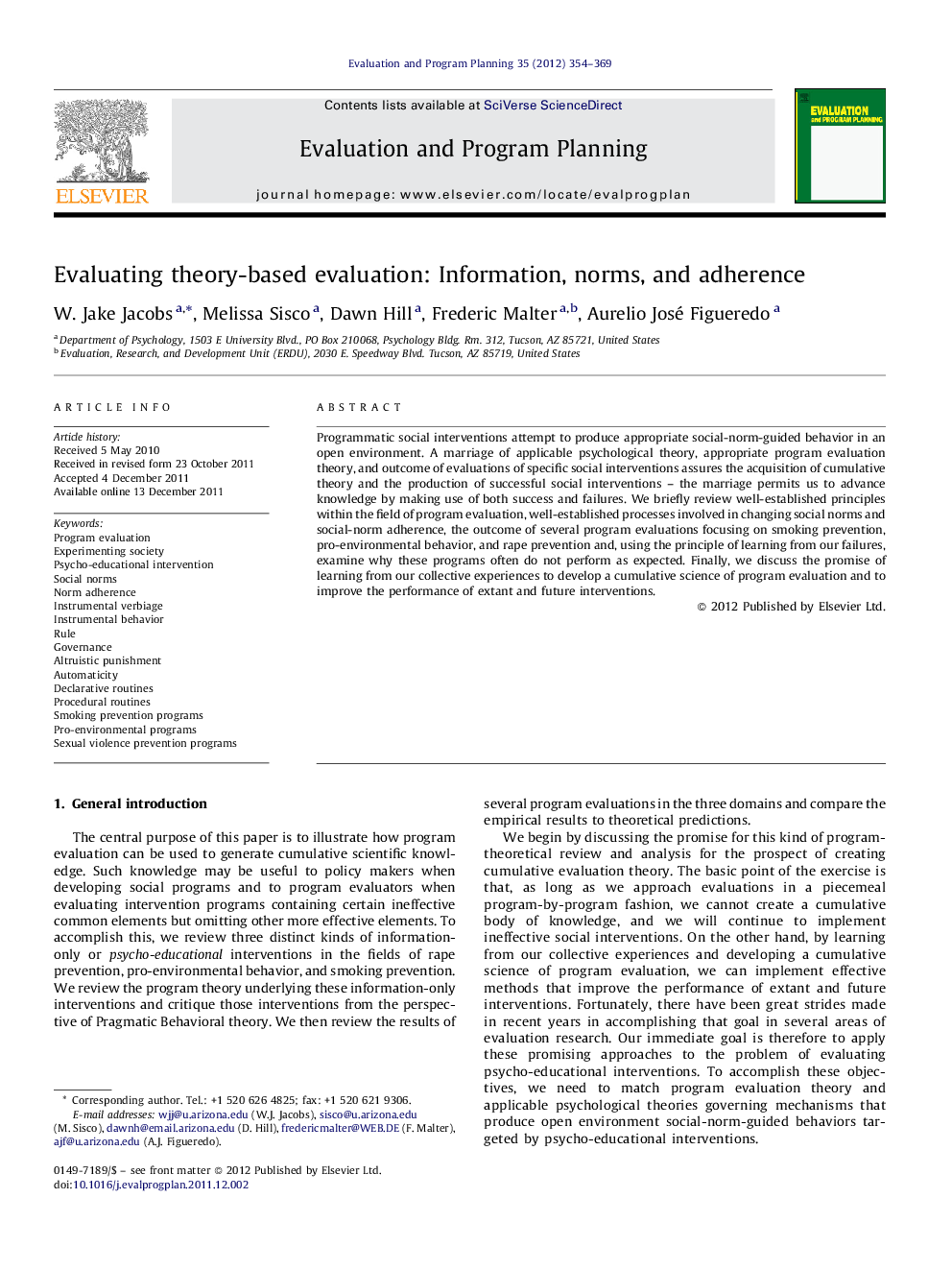| Article ID | Journal | Published Year | Pages | File Type |
|---|---|---|---|---|
| 322282 | Evaluation and Program Planning | 2012 | 16 Pages |
Programmatic social interventions attempt to produce appropriate social-norm-guided behavior in an open environment. A marriage of applicable psychological theory, appropriate program evaluation theory, and outcome of evaluations of specific social interventions assures the acquisition of cumulative theory and the production of successful social interventions – the marriage permits us to advance knowledge by making use of both success and failures. We briefly review well-established principles within the field of program evaluation, well-established processes involved in changing social norms and social-norm adherence, the outcome of several program evaluations focusing on smoking prevention, pro-environmental behavior, and rape prevention and, using the principle of learning from our failures, examine why these programs often do not perform as expected. Finally, we discuss the promise of learning from our collective experiences to develop a cumulative science of program evaluation and to improve the performance of extant and future interventions.
